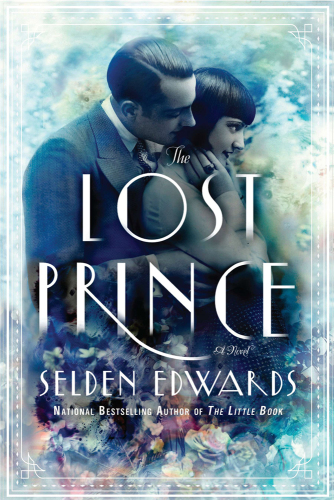
The Lost Prince
The Little Book Series, Book 2
- اطلاعات
- نقد و بررسی
- دیدگاه کاربران
نقد و بررسی

June 18, 2012
Edwards’s sprawling second novel, it turns out, is no less a puzzle than his bestselling The Little Book, and follows on its heels in time, as Weezie Putnam returns from fin-de-siècle Vienna with a new name, Eleanor Burden, and a leather-bound journal that reveals “forthcoming events well into the twentieth century,” handwritten instructions that she believes will determine her destiny. This mysterious “Vienna journal” outlines a series of actions for Eleanor to take, throughout her life, that will make her not only wealthy but a crucial silent playmaker in world history, influencing the likes of Sigmund Freud, Carl Jung, and William James, all while maintaining the facade of a Boston socialite and devoted wife. One of her most significant contributions involves financially backing a conference to bring Freud to the U.S. with the help of her godfather, William James. But Eleanor’s personal triumph is securing a teaching position in Boston for a young Austrian named Arnauld Esterhazy, who becomes a mentor to her young son. But when Arnauld, “swept up in the fervor” of WWI, disappears from her life (breaking with the journal’s predictions), Eleanor’s unwavering faith in the journal is shaken, and she heads to war-ravaged Europe just days after the armistice in a desperate search for Arnauld among the makeshift hospitals that house so many men destroyed by the war. Once again, Edwards has a good time connecting historical events and philosophical ideas, and also connecting this book to his first, though many of those threads remain loose until late in the narrative, and parts of the book feel verbose. But Edwards’s bird’s-eye view of the details of this momentous age makes this companion piece as much fun as his debut.

Starred review from August 1, 2012
Hints of time travel haunt this historical and philosophical novel set in early-20th-century Boston and Europe. In 1898, Weezie Putnam returns to the States from a memorable trip to Vienna with three things: a manuscript, a ring and a journal. The manuscript lauds the genius of Mahler, and she publishes it pseudonymously under the name "Jonathan Trumpp." The ring she sells for $5,000, an enormous sum, to provide seed money for future investments. And the journal--the most precious artifact of all--was written in the future and thus provides her with a window into major 20th-century events. One might also add that she returns with a new name, Eleanor, and thus with a new persona. Because of the information provided in the journal, she knows her destiny and starts ensuring it comes about. As predicted, Eleanor marries a prominent banker, Frank Burden and begins a series of investments that initially seem questionable, though her foreknowledge assures her of their inevitable exorbitant worth. She hires a man named T. Williams Honeycutt, because the journal has informed her that he will be important in the success of her business life, but he has a cousin with the same name, so it's problematic whether she's hired the right one. She takes her largest risk with a young Viennese intellectual named Arnauld Esterhazy, who becomes the father of her son and who seems to have died at the battle of Caporetto in 1917, but the journal has predicted a long life for him, one intricately interwoven with Eleanor's. She's so convinced of the journal's truth that she makes a dangerous trek to postwar Europe to find him, and she succeeds. He's shellshocked, and she takes him to Jung's clinic in Zurich to recover. Throughout the novel, Edwards skillfully intertwines Eleanor's predestined fate with her relationships to Freud, Jung, J. P. Morgan, William James and other historical figures. A powerful, intense and fascinating read.
COPYRIGHT(2012) Kirkus Reviews, ALL RIGHTS RESERVED.

March 1, 2012
The Little Book, Edwards's 2008 debut, took 1980s rock star Wheeler Burden back to 1897 Vienna. In this sequel, Eleanor Burden has returned to New England from her own unsettling experience in fin de siecle Vienna and wrestles with premonitions of the 20th century's horrors, never mind that Freud himself called her delusional. Some critics had doubts about The Little Book, but many readers were enthusiastic.
Copyright 2012 Library Journal, LLC Used with permission.

June 1, 2012
Moving from America's Gilded Age through WWI's aftermath in Europe, Edwards' delightfully imaginative second novel follows a courageous woman's singular accomplishments and their far-reaching effects on history. In 1898, vivacious Eleanor Putnam returns to Boston from Vienna despondent after losing her greatest love, Wheeler Burden, but with important plans to set in motion. The journal Wheeler left behind predicts major twentieth-century events and tells Eleanor everything she must do to make her future and that of her descendants turn out as they should. This involves making secret investments, marrying her unexciting suitor, introducing Freud to America, and convincing a Viennese scholar, Arnauld Esterhazy, to teach at a Boston boys' school. She succeeds brilliantly, but Arnauld's unexpected wartime death threatens to destroy everything she worked for. Eleanor discovers she has a surprising amount of latitude for personal choice within her predetermined life, which keeps the plot unpredictable and fresh. Intelligent and romantic, The Lost Prince can stand independently of The Little Book (2008), which told Wheeler's story, but why deprive yourself of the pleasures of reading both?(Reprinted with permission of Booklist, copyright 2012, American Library Association.)




دیدگاه کاربران